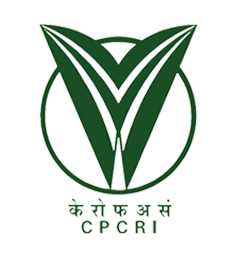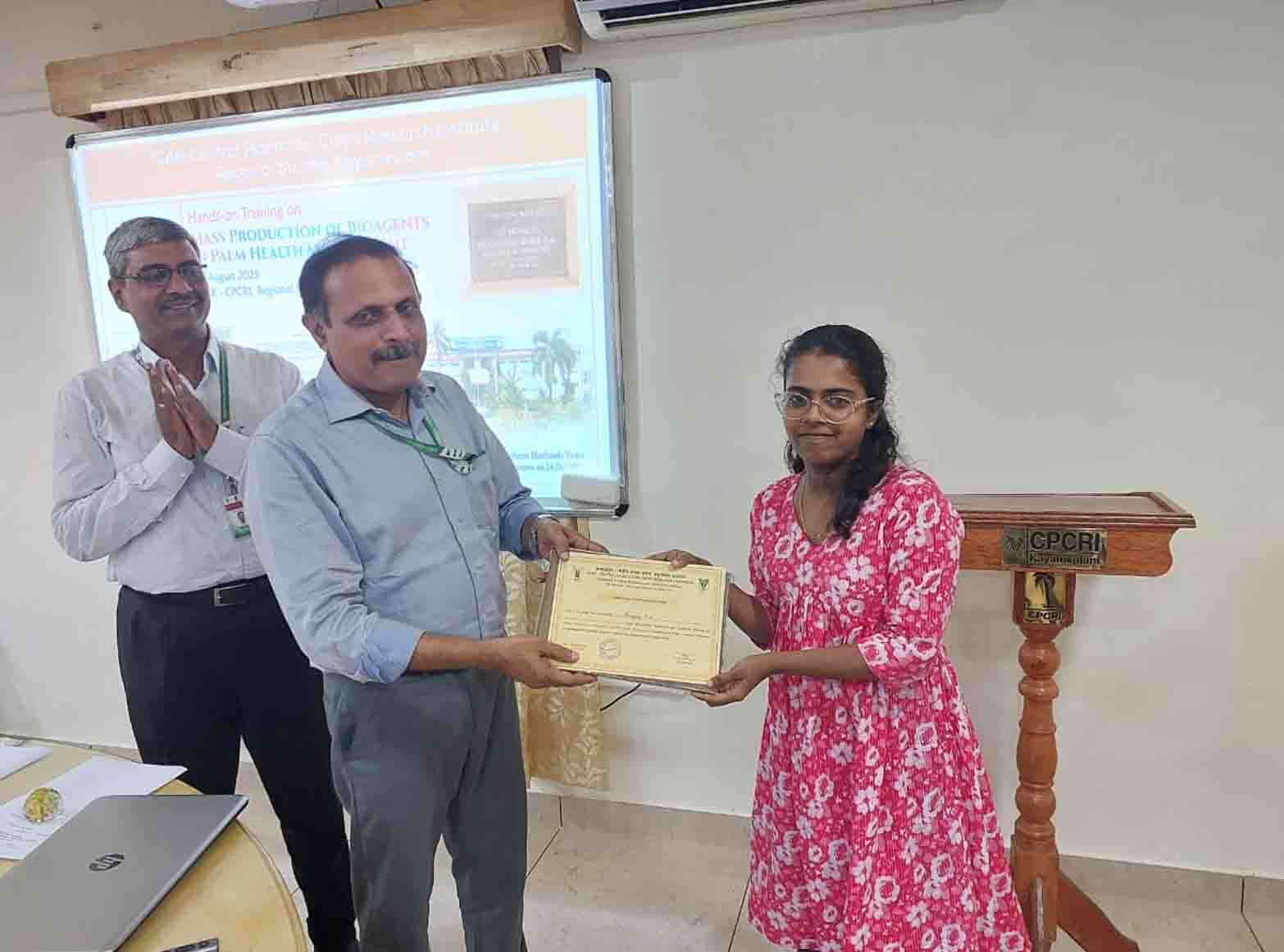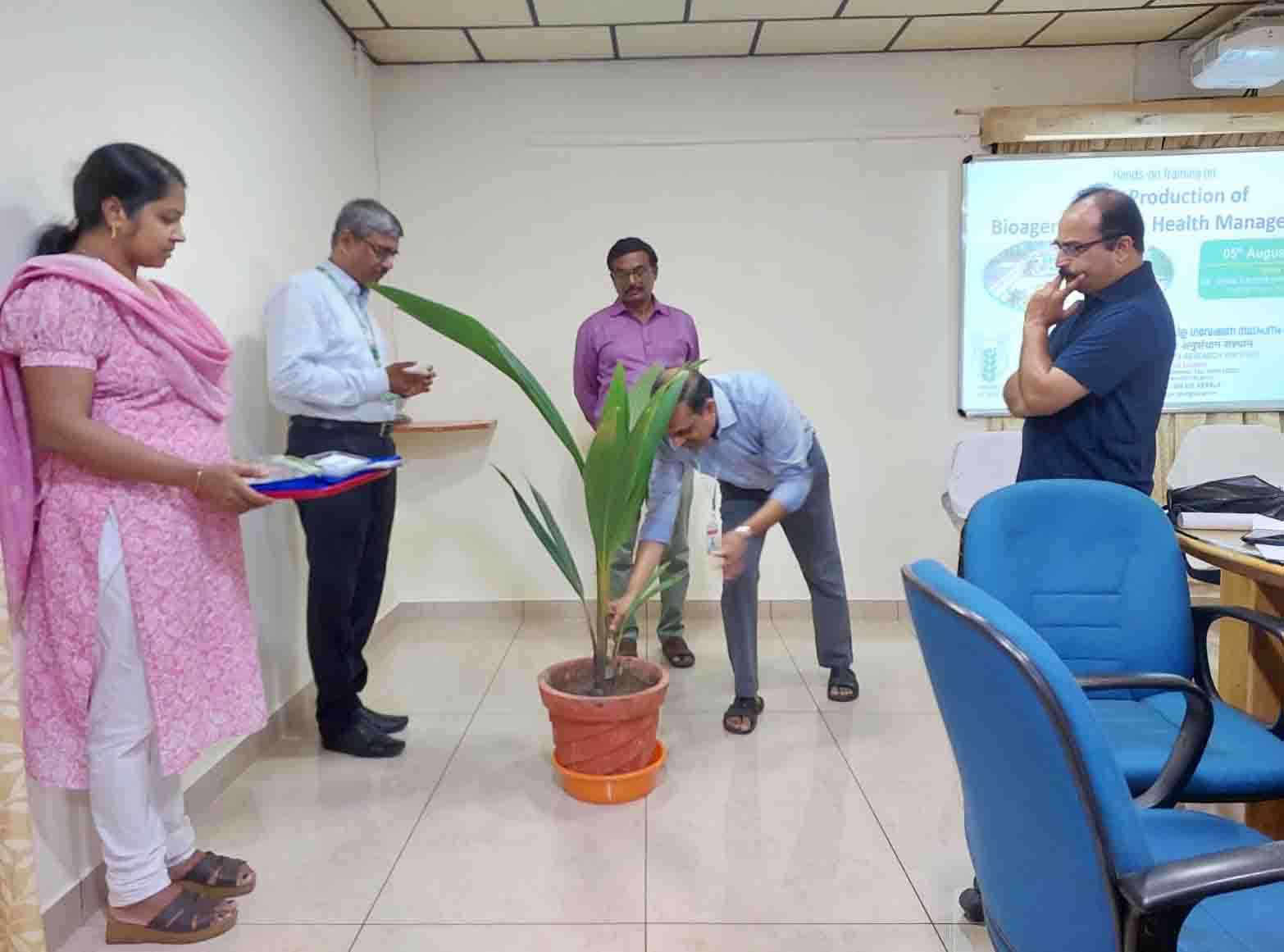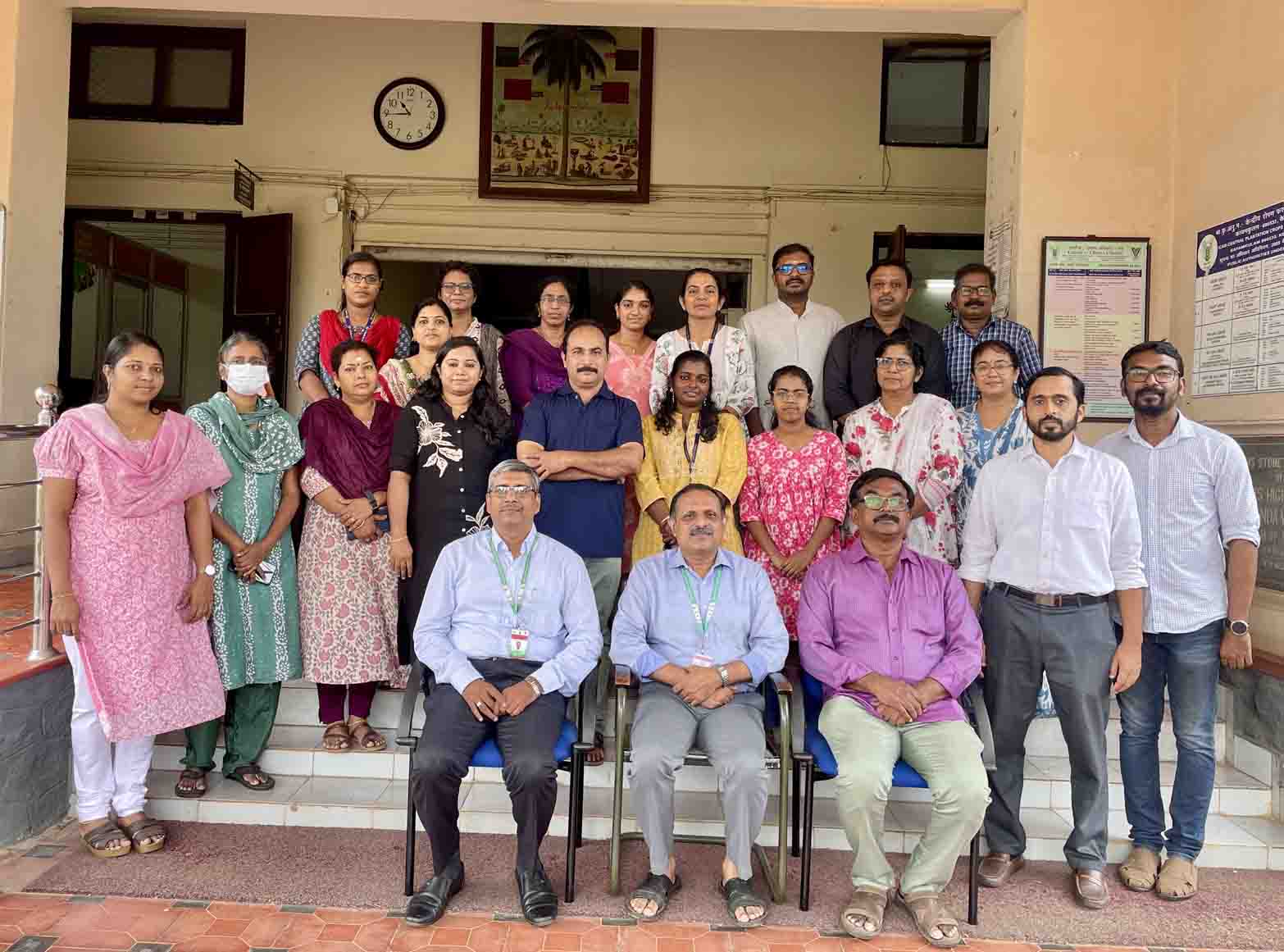Hands-On-Training on Mass Production of Bioagents
Aug 05, 2025 : ICAR-CPCRI, Regional Station, Kayamkulam | Author:Web Admin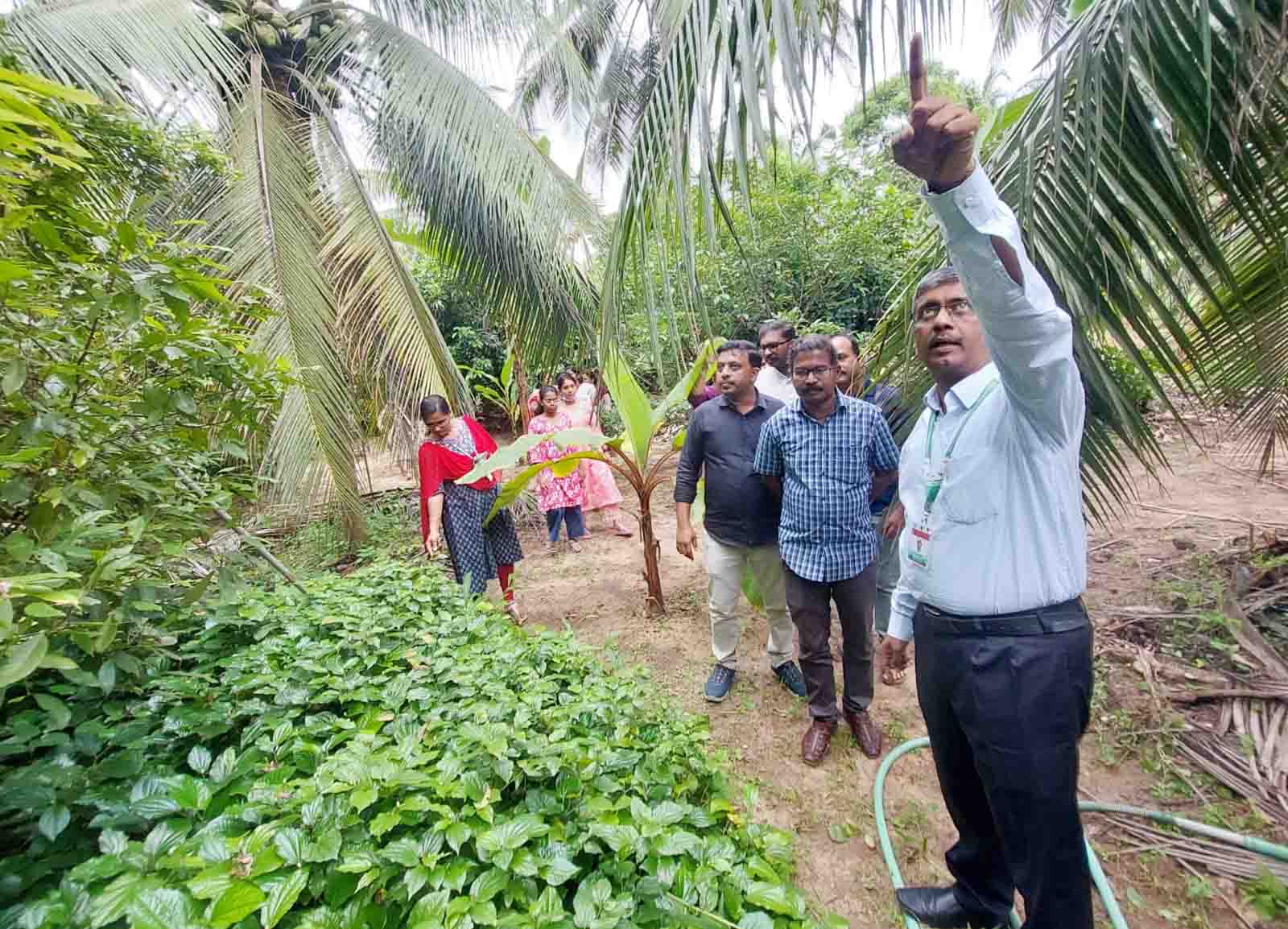
A one-day hands-on-training on the mass production or bioagents for palm health management was imparted to officials of Parasite Breeding Stations in Kerala as well as to the Scientists of Kerala Agricultural University, Thrissur. Total sixteen officials, including 14 from eight Parasite Breeding Stations and two assistant professors from Kerala Agricultural University participated in the training programme held at ICAR-CPCRI Regional Station, Kayamkulam on 05-08-2025.
The programme was inaugurated by Dr. Regi Jacob Thomas, Head, by placing the bioagents on to the coconut seedlings. He opined such refresher course should be convened at regular intervals for fine-tuning the mass production techniques in their biocontrol laboratories. He highlighted on the two novel bioagents viz., the entomopathogenic nematode capsules and the egg parasitoid, Anastatus ramakrishnai developed by the Crop Protection team for the bio-suppression of red palm weevil and coreid bug, respectively. Dr A. Abdul Haris, Principal Scientist offered felicitation for the training programme.
Training session on the history of biological control in the country with emphasis on the bio-suppression of exotic whiteflies infesting palms was highlighted by Dr.A. Joseph Rajkumar, Principal Scientist. Mass production techniques of Trichoderma harzianum, Anastatus ramakrishnai, Steinernema keralense were highlighted by Dr. Merin Babu, Senior Scientist, Dr. Jilu V. Sajan, Scientist and Dr. K.M. Anes, Senior Scientist, respectively.
In the afternoon, hands-on-training on the mass production of larval parastioids, viz., Goniozus nephantidis, Bracon brevicornis using Corcyra cephalonica, egg parasitoid A. ramakrishnai using Samia ricini, entomopathogens such as Metarhizium majus, Hirsutella thompsonii, antagonistic fungi such as Trichoderma harzianum, Pochonia chlamydosporia and the entomopathogenic nematode, Steinernema keralense were conducted. The trainees were also taken to the experimental plot of heterogenous landscaping and highlighted on the stimulo-deterency principles and strategies improving biodiversity for realizing field efficacy of bioagents. Excellent feedback on the training programme was provided by the trainees who had expressed that the training module should be conducted for at least three days in future. Certificates were also provided to all participants

